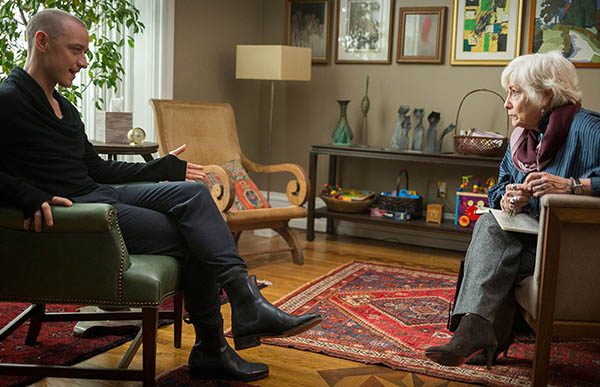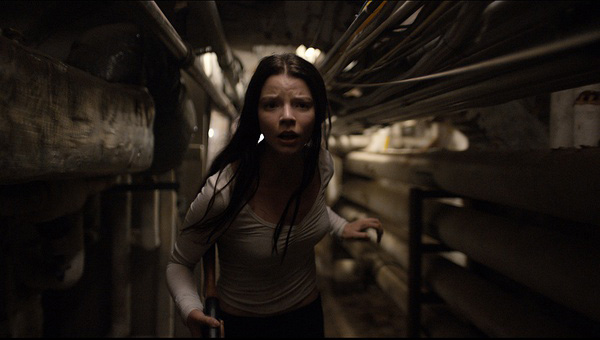Split Review
Few filmmakers have faced the scrutiny M. Night Shyamalan has endured in the nearly 20 years since “The Sixth Sense” became a global phenomenon and launched his memorable name into the spotlight. With each progressive film, it seemed Shyamalan drew more and more ire for his twist-focused approach to horror and by the late 2000s, nearly all his projects were panned. With “Split,” he appears to be on the rebound.
Shyamalan’s upswing actually began with a nice reception for 2015’s “The Visit,” a return to horror after a foray into sci fi/fantasy (to no avail). “Split” builds on that momentum as a psychological thriller that walks a fine line between expert cinematic tension and unabashed lunacy. The film contains both that which has, at times, garnered Shyamalan much praise, and also that which has been the source of much derision.
Creating a horror thriller based on an actual psychological condition – Dissociative Identity Disorder – immediately positions “Split” in dicey territory. It could quickly come across as exploiting a serious issue for the sake of entertainment. Shyamalan works around this as best he can by naming DID and devoting exposition to it in the form of Betty Buckley’s character Dr. Karen Fletcher, the foremost expert on DID and a therapist with a longstanding relationship with Kevin (James McAvoy), who has 23 distinct personalities.
Part of the mystery is that Fletcher senses something is off, that Kevin is hiding something. She is part of the story, not just a way for us to understand it. From a social responsibility perspective, this is a better approach than the 2003 film “Identity,” which was more exploitative of DID.

Of course Kevin is hiding something, as in the film’s opening, he kidnaps three teenage girls: Claire (Haley Lu Richardson), Marcia (Jessica Sula) and Casey (Anya Taylor-Joy). Casey, the outsider of the three girls, draws on memories from her troubled past to try and understand her unusual captor.
Everything hinges on believing McAvoy’s performance and the script’s ability to set him up to be believed. Both flirt with disaster, like at any moment we might laugh at the entire production, but we end up buying it. McAvoy really commits to Kevin’s many personalities, which Shyamalan wisely limits to a handful. There’s a logic and sense of purpose behind which ones show up at which times. McAvoy owns them to the point that we actually see them as different characters when they’re on screen.
Yet it’s the mystery of Kevin’s intent and what he might be capable of that keeps things tense throughout most of the film, a tension that shifts from mystery-driven to horror-driven in the final act. At this point, “Split” becomes a much stranger movie and we’re surprised at just where and how far Shyamalan will go.

In narrative and thematic respects, however, “Split” doesn’t quite pay off for all that it builds up. Piece by piece we get to know a lot about Cassie, for example, and enter her psychology, but her role in the story doesn’t contribute anything revelatory. She’s merely a more traditional protagonist to root for, another troubled mind to understand. The biggest “twist” is actually tied to this weaker component, and it kind of flies in the face of everything else that’s happening in the movie tonally. Not enough to derail it, but enough to remind you of Shyamalan’s challenges as a writer.
Even worse for the film’s tone, a post-credits revelation that Shyamalan throws into the movie has a souring effect on its ending. It seems entirely unnecessary and makes Shyamalan come off as self- aggrandizing – but that’s about all that can be said spoiler-free. Ultimately, here’s a filmmaker who is figuring out how to deliver the best version of the films he wants to make and he’s getting closer.
3.5/5 Stars
Split
Written and Directed by M. Night Shyamalan
Starring: James McAvoy, Anya Taylor-Joy, Betty Buckley





0 Comments
You can be the first one to leave a comment.